Introduction
DevOps
Become a DevOps Engineer in 4 Months with PG Program in Cloud & DevOps
Welcome to the world of DevOps, where speed, efficiency, and collaboration transform the traditional landscape of software development and operations. Our comprehensive DevOps course introduces you to the core principles and practices that integrate and automate key processes in software delivery. Designed for IT professionals and aspiring DevOps practitioners, this course will empower you with the skills to improve deployment frequency and product stability, while ensuring faster resolution of problems. Join us to master the art of using tools like Jenkins, Docker, and Kubernetes, and to cultivate a culture of continuous improvement in your organization.
Show your interest
Successful Graduates
Batches Completed
Expert Instructors
Industry Partnerships
Key Impact
Transforming Careers
Career Advancement
Graduates of our program see remarkable career growth, often stepping into leadership roles or transitioning to lucrative positions in tech-driven companies.
Skill Enhancement
Our course enhances your technical and collaborative skills, preparing you to implement complex DevOps practices effectively and with confidence.
Innovation Boost
By fostering an understanding of the latest tools and practices, we enable you to contribute to projects that are at the forefront of technological innovation.
Network Expansion
As part of our cohort-based learning, you’ll build valuable connections with like-minded professionals, expanding your professional network and opening doors to new opportunities.
Our Alumni Work At

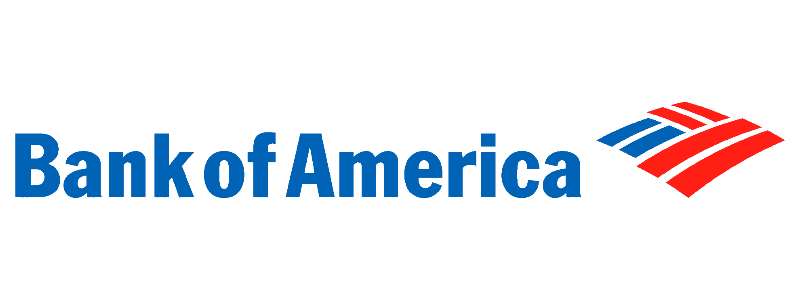

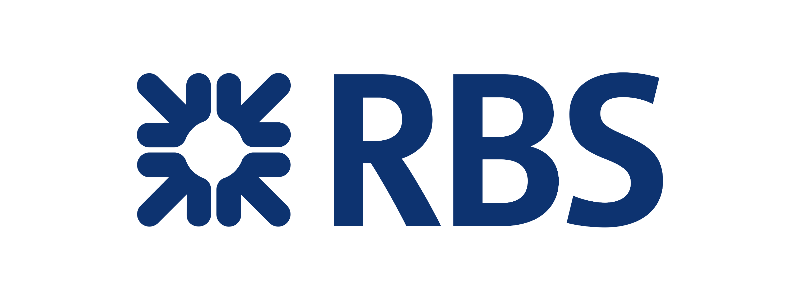



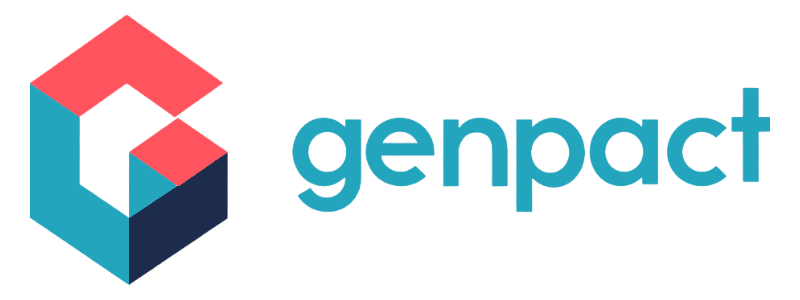
Students Testimonial

~ Saad Shaikh

~ Purva Mishra

~ Sagaj porwal

~ Shriharsh Gaikwad

~ Ganaram Chaudhary
Our Success Story

~ Saad Shaikh

~ Purva Mishra

~ Sajag porwal

~ Ganaram Chaudhary

~ Shriharsh Gaikwad
Course Breakdown
- Lesson 1: What is DevOps?
– Overview of DevOps
– History and evolution
– Key principles and practices - Lesson 2: DevOps Culture
– Collaboration and communication
– DevOps values and mindset
– Case studies of successful DevOps implementations - Lesson 3: DevOps Tools Overview
– Commonly used DevOps tools
– Categories of DevOps tools (CI/CD, Configuration Management, etc.)
– Introduction to toolchains
- Lesson 1: Introduction to Git
– What is Git?
– Setting up Git
– Basic Git commands - Lesson 2: Working with Repositories
– Creating and cloning repositories
– Branching and merging
– Managing pull requests - Lesson 3: Advanced Git
– Rebasing and squashing commits
– Handling merge conflicts
– Git workflows (GitFlow, GitHub Flow, etc.)
- Lesson 1: Introduction to CI
– What is CI?
– Benefits of CI
– CI best practices - Lesson 2: CI Tools
– Overview of CI tools (Jenkins, GitLab CI, CircleCI, etc.)
– Setting up a CI pipeline
– Configuring builds and tests - Lesson 3: Advanced CI
– Parallel builds
– Integrating CI with code quality tools
– Notifications and reporting
- Lesson 1: Introduction to CD
– What is CD?
– Difference between Continuous Deployment and Continuous Delivery
– Benefits and challenges - Lesson 2: CD Tools and Practices
– Overview of CD tools (Jenkins, GitLab CI, Spinnaker, etc.)
– Setting up a CD pipeline
– Blue-green deployments and canary releases - Lesson 3: Advanced CD
– Rollbacks and versioning
– Integrating CD with monitoring tools
– Security and compliance in CD
- Lesson 1: Introduction to Configuration Management
– What is configuration management?
– Importance and benefits
– Key tools (Ansible, Puppet, Chef, etc.) - Lesson 2: Ansible Basics
– Setting up Ansible
– Writing Ansible playbooks
– Managing inventory and hosts - Lesson 3: Advanced Ansible
– Roles and variables
– Ansible Galaxy
– Troubleshooting and best practices
- Lesson 1: Introduction to Containers
– What are containers?
– Benefits of containerization
– Docker basics - Lesson 2: Docker in Depth
– Dockerfile and images
– Docker Compose
– Managing containers - Lesson 3: Container Orchestration with Kubernetes
– Introduction to Kubernetes
– Kubernetes architecture
– Deploying applications on Kubernetes - Lesson 4: Advanced Kubernetes
– Helm charts
– Kubernetes networking and storage
– Monitoring and logging in Kubernetes
- Lesson 1: Introduction to IaC
– What is IaC?
– Benefits of IaC
– Key tools (Terraform, CloudFormation, etc.) - Lesson 2: Terraform Basics
– Setting up Terraform
– Writing Terraform configurations
– Managing infrastructure with Terraform - Lesson 3: Advanced Terraform
– Terraform modules
– State management
– Working with multiple providers
- Lesson 1: Introduction to Monitoring and Logging
– Importance of monitoring and logging
– Key metrics and logs to monitor
– Tools overview (Prometheus, Grafana, ELK Stack, etc.) - Lesson 2: Setting Up Monitoring
– Installing and configuring Prometheus
– Visualizing metrics with Grafana
– Setting up alerts - Lesson 3: Centralized Logging
– Introduction to the ELK Stack
– Configuring Elasticsearch, Logstash, and Kibana
– Log aggregation and analysis
- Lesson 1: Introduction to DevSecOps
– What is DevSecOps?
– Integrating security into the DevOps pipeline
– Common security practices - Lesson 2: Security Tools and Practices
– Static code analysis tools
– Dependency management and vulnerability scanning
– Secrets management - Lesson 3: Advanced Security
– Container security best practices
– Infrastructure security
– Continuous compliance and auditing
- Lesson 1: Introduction to Cloud Computing
– What is cloud computing?
– Cloud service models (IaaS, PaaS, SaaS)
– Key cloud providers (AWS, Azure, GCP) - Lesson 2: AWS Fundamentals
– AWS core services (EC2, S3, RDS, etc.)
– Setting up and managing AWS infrastructure
– AWS CLI and SDKs - Lesson 3: Advanced AWS
– AWS Lambda and serverless computing
– Managing security and compliance in AWS
– Cost optimization
- Lesson 1: Communication and Collaboration
– Effective communication in a DevOps environment
– Collaboration tools and practices
– Conflict resolution - Lesson 2: Problem Solving and Troubleshooting
– Approaches to problem solving
– Troubleshooting common DevOps issues
– Case studies and real-world scenarios - Lesson 3: Resume Building and Interview Preparation
– Building a DevOps resume
– Preparing for DevOps interviews
– Common DevOps interview questions
DevOps Projects
Infrastructure Automation at Scale
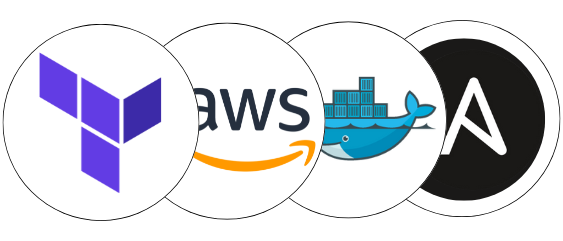
Automate provisioning EC2 servers on AWS with Terraform and automate deploying dockerized applications with docker-compose using Ansible by taking advantage of AWS dynamic inventory.
Production Grade CI/CD with K8s
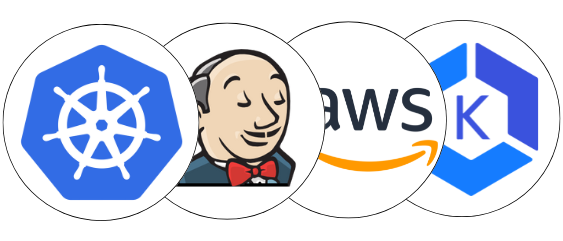
Deploying to Kubernetes cluster on EKS from a complete CI/CD pipeline with automatic triggering, dynamic versioning for new docker application image.
App Monitoring & Recovery
App Monitoring & Recovery
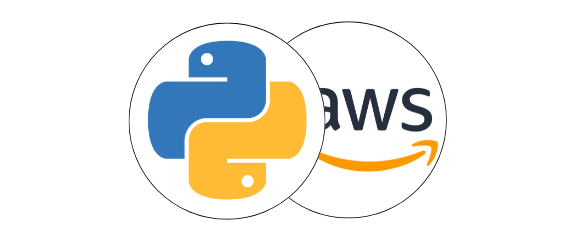
Write an automated script in Python for monitoring a web application. Notifying about the status and recovering the application if not accessible.
CI/CD with Docker Compose
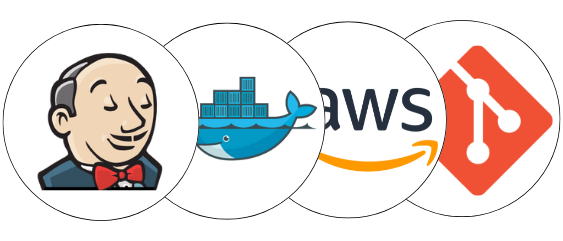
Deploy to AWS EC2 using docker compose from a complete CI/CD pipeline with automatic versioning, building a docker image.
Dockerize Application Pipeline
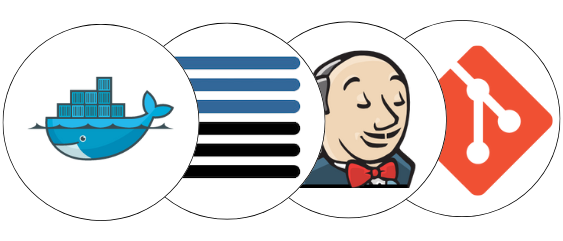
Dockerize an application, set up a private Docker registry on Nexus for saving the images and setup an end to end CI/CD pipeline to deploy the application.
Deploy Microservices App to K8s cluster
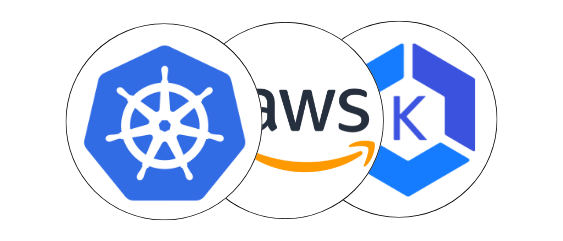
Deploying a Microservices Application into K8s cluster with Production & Security Best Practices.
Monitoring & Alerting in K8s cluster
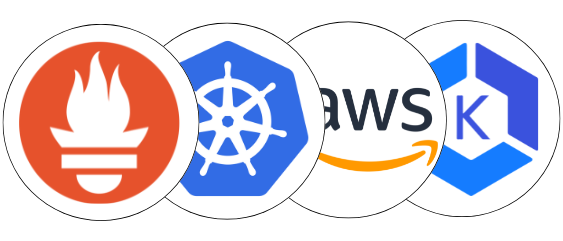
Configure a K8s cluster with Prometheus monitoring and alerting. Deploy a web application inside the cluster with its dependent services and configure monitoring for it.
Infrastructure Automation at Scale

Automate provisioning EC2 servers on AWS with Terraform and automate deploying dockerized applications with docker-compose using Ansible by taking advantage of AWS dynamic inventory.
Production Grade CI/CD with K8s

Deploying to Kubernetes cluster on EKS from a complete CI/CD pipeline with automatic triggering, dynamic versioning for new docker application image.
App Monitoring & Recovery

Write an automated script in Python for monitoring a web application. Notifying about the status and recovering the application if not accessible.
CI/CD with Docker Compose

Deploy to AWS EC2 using docker compose from a complete CI/CD pipeline with automatic versioning, building a docker image.
Dockerize Application Pipeline

Dockerize an application, set up a private Docker registry on Nexus for saving the images and setup an end to end CI/CD pipeline to deploy the application.
Deploy Microservices App to K8s cluster

Deploying a Microservices Application into K8s cluster with Production & Security Best Practices.
Monitoring & Alerting in K8s cluster

Configure a K8s cluster with Prometheus monitoring and alerting. Deploy a web application inside the cluster with its dependent services and configure monitoring for it.
Your Path to Success
Our alumni have gone on to achieve remarkable success in their careers, leveraging the skills and knowledge gained from our courses.
Join our community and become part of a network of professionals who are making an impact in the industry.

Master essential concepts with engaging videos, comprehensive reading materials, and interactive quizzes.
Enhance your portfolio by solving real-world problems, guided by industry experts to learn best practices.
Polish your resume and practice through mock interviews with our experts, preparing you to excel in job interviews.
Receive extensive support from our team to secure interviews and land positions at top companies.
Earn A Certification
Upon successful completion, you’ll receive a certification that validates your expertise and boosts your career prospects. Join us and take the next step towards achieving your professional goals.
-
Earn Your
Certificate -
Share Your
Achievement
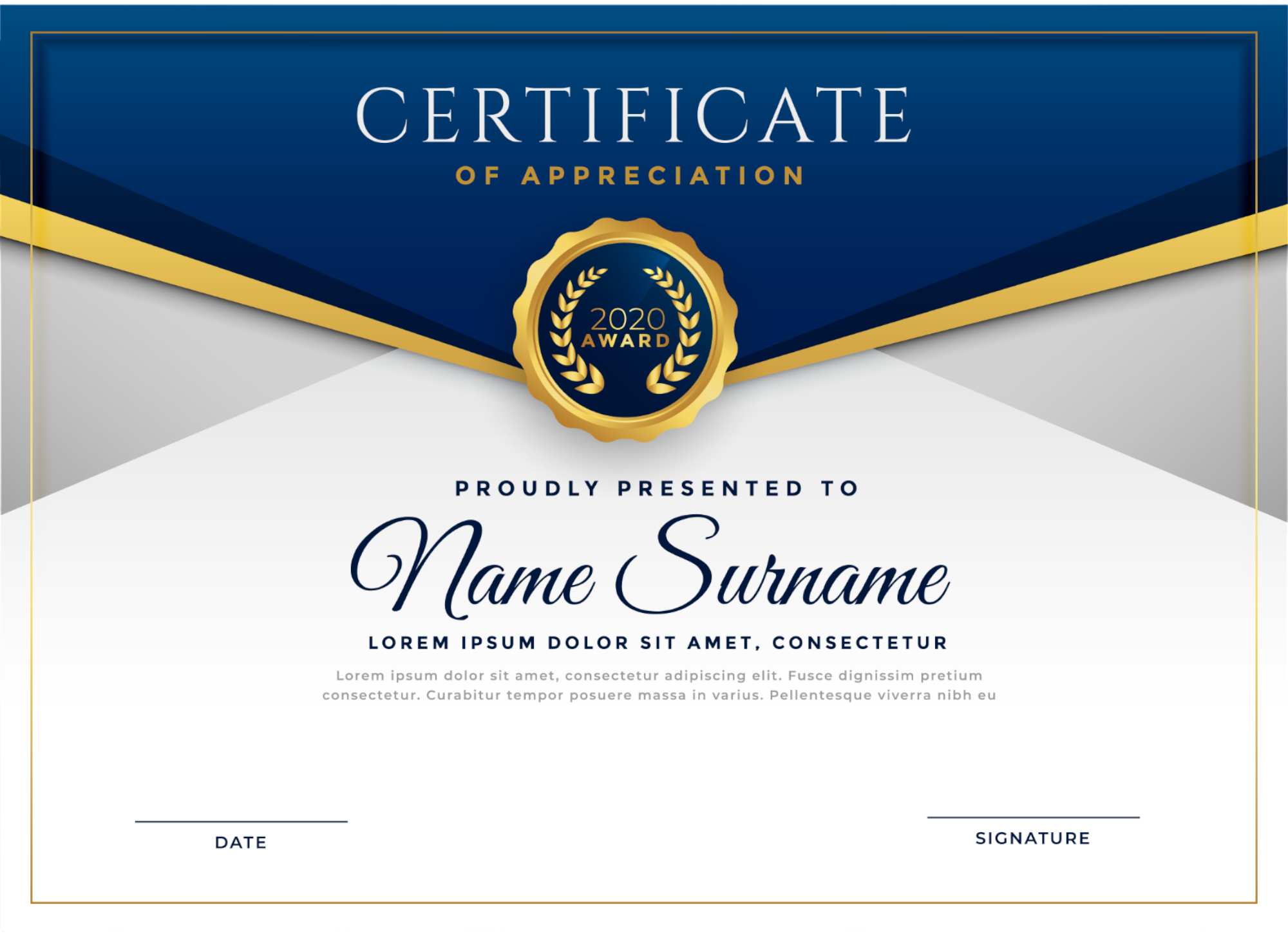
Why Choose DevOps from DevOps Institute Thane

Top-Ranked DevOps Training

Expert Faculty

Cutting-Edge Curriculum

Global Recognition

Participant Profile
Experience

From Top Organizations
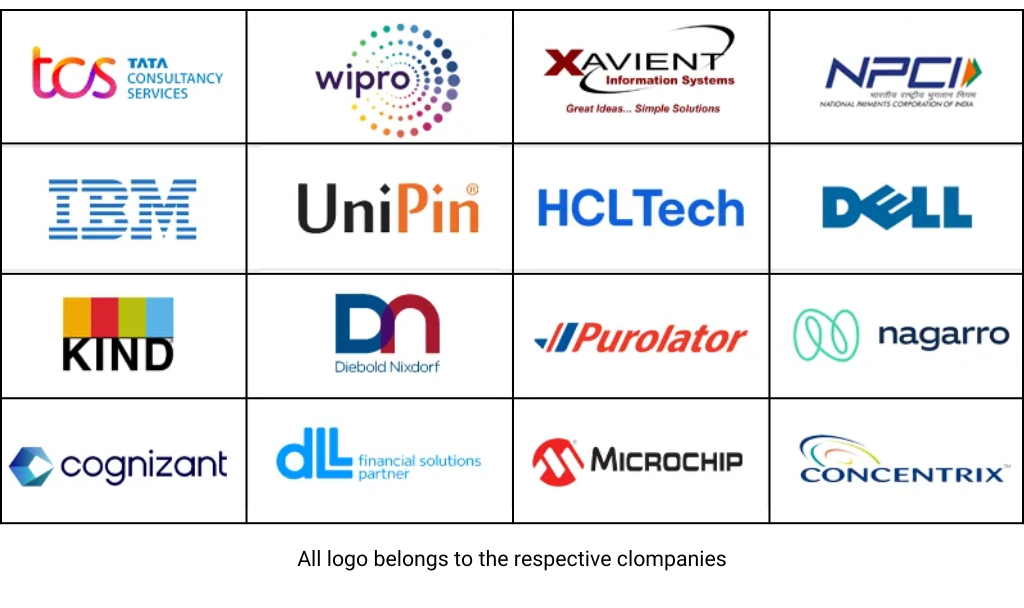
About DevOps

18
Years of
Excellence
99%
Course Completion
Rate
90
Net Promoter
Score
22+
Awards &
Accolades
DevOps Institute Thane is a premier EdTech company specializing in comprehensive DevOps training programs for both early career and experienced professionals. Our courses are designed in collaboration with industry leaders to meet the ever-evolving demands of the tech world. Through our state-of-the-art learning platform, we offer a blend of onsite and online learning experiences, ensuring flexibility and convenience for our students. Our mission is to create a skilled workforce equipped with cutting-edge DevOps knowledge and practices, ready to excel in the modern industry landscape.
Find Out Why Participants Want to Join This Program

"The program not only taught me technical skills but also provided numerous opportunities to network with industry professionals and peers, which has been beneficial for my career growth."
Vikram P.

"From the basics to advanced concepts, every topic was covered in detail. The practical approach to learning helped me understand and apply concepts effectively in real-world scenarios."
Priya D.

"The faculty and support staff were incredibly supportive throughout the course. The collaborative spaces and modern facilities made learning enjoyable and effective."
Rahul M.

"The curriculum is perfectly aligned with what the industry needs. I felt prepared and confident during job interviews and landed my dream job within months of graduation."
Neha S.

The DevOps program at DevOps Institute Thane has completely transformed my career. The hands-on projects and industry insights were invaluable."
Amit K.
FAQs
We have multiple instructors that are highly qualified in areas such as Microsoft, DevOps, AWS, and Google. They have expertise in new technologies like Kubernetes, Multi-Cloud, and DevOps. All are subject matter experts and are trained to provide online training, ensuring participants receive a great learning experience.
Anyone with a background in IT, software development or system administration looking to advance their skills in DevOps.
All you need is good internet connection ( we recommend 0.5 MB or 512 KB ) with (headset preferably) and leave the rest on us.
Familiarity with Linux/Unix commands, basic scripting and an understanding of software development processes are recommended.
The course spans approximately 12 months, with flexible learning options available.
Yes, successful completion of the course and projects will earn you a DevOps Certification from Talent Spirit.

